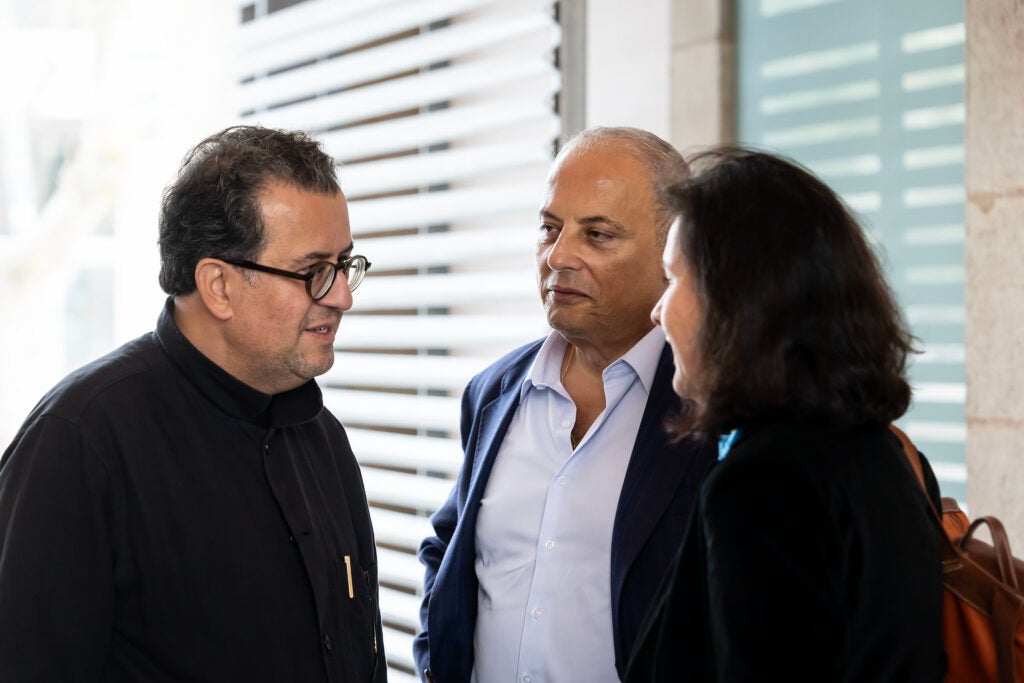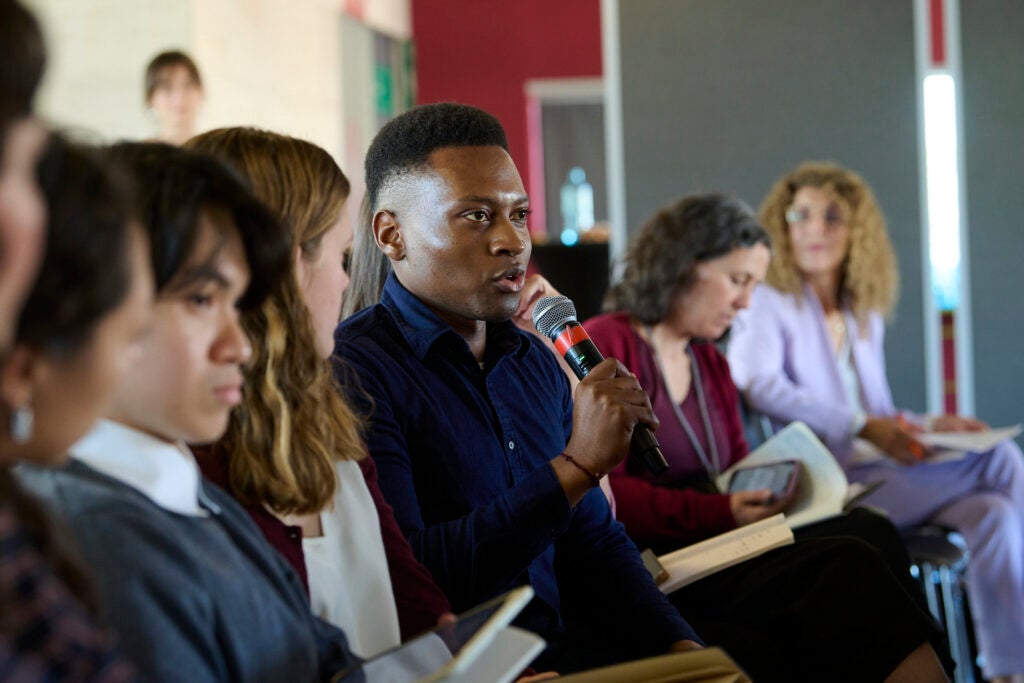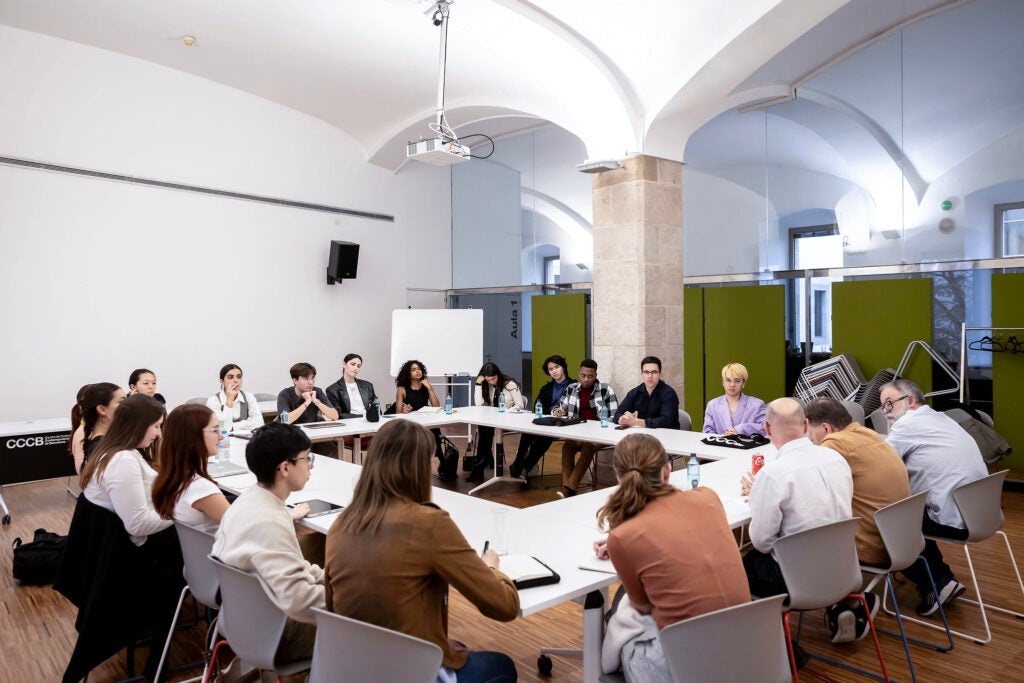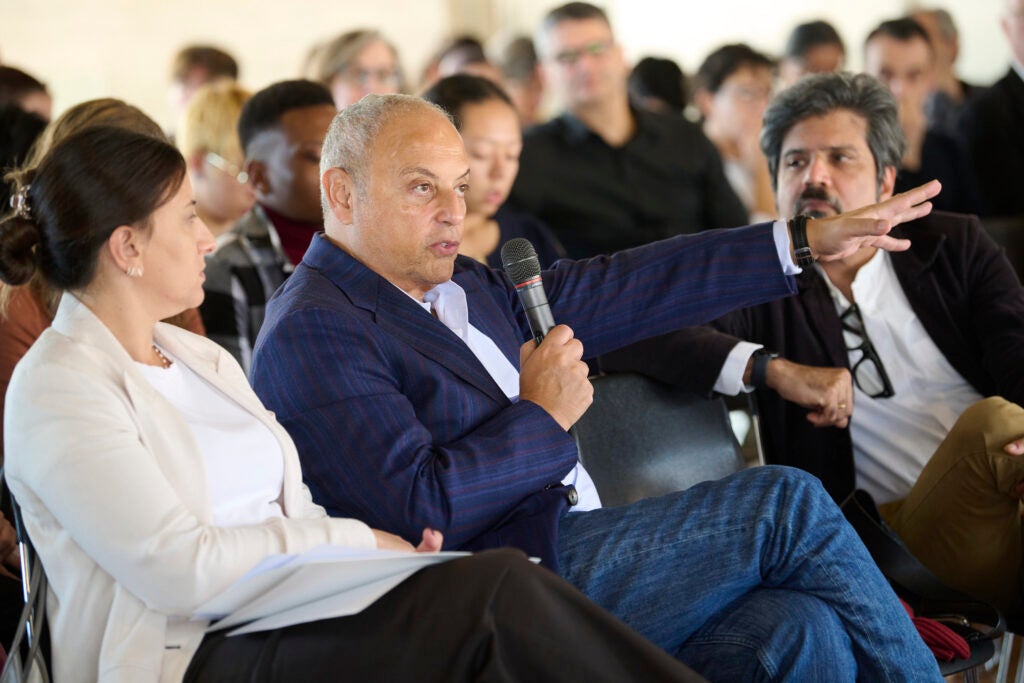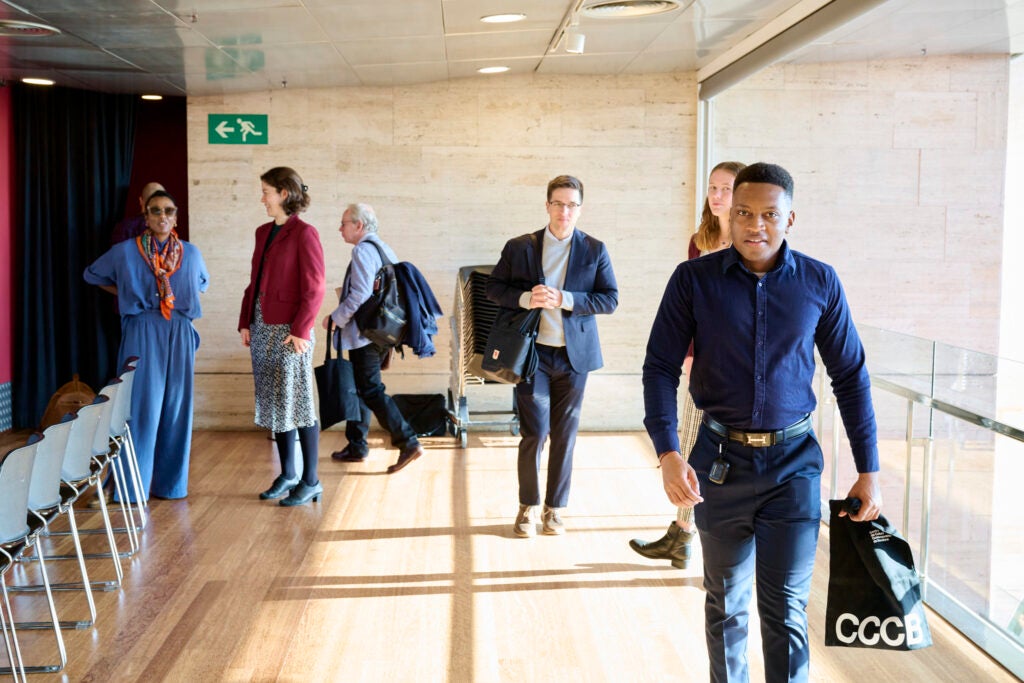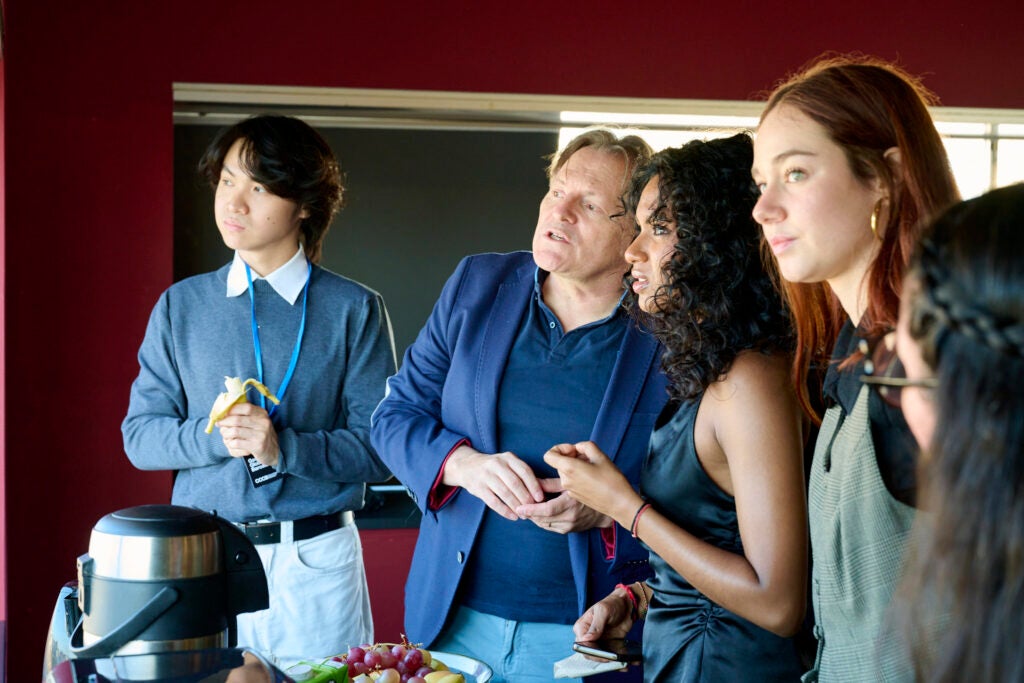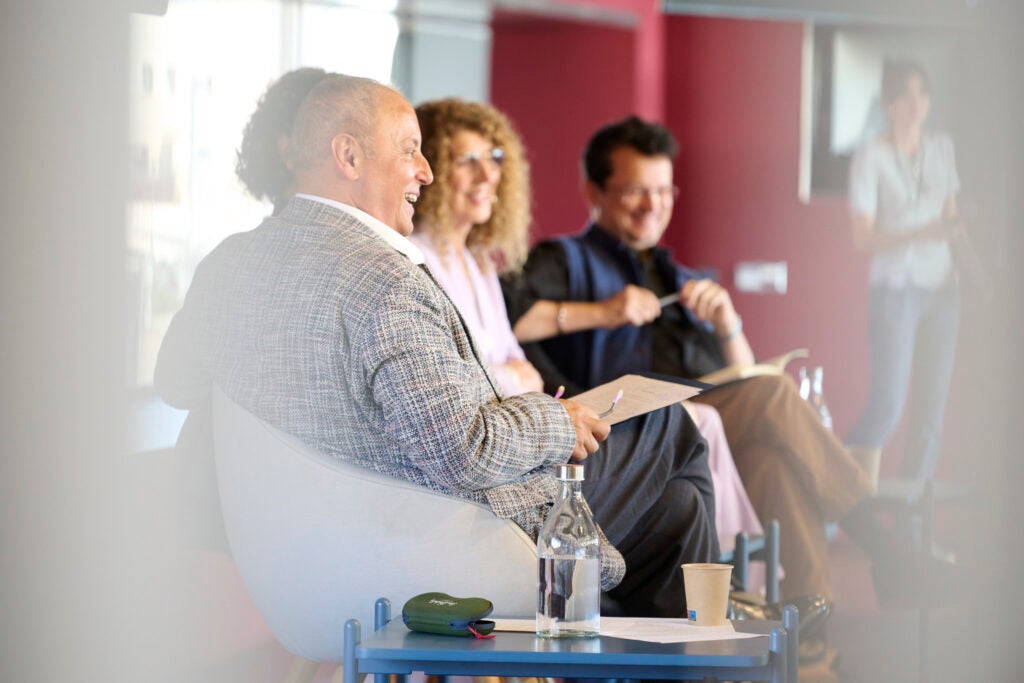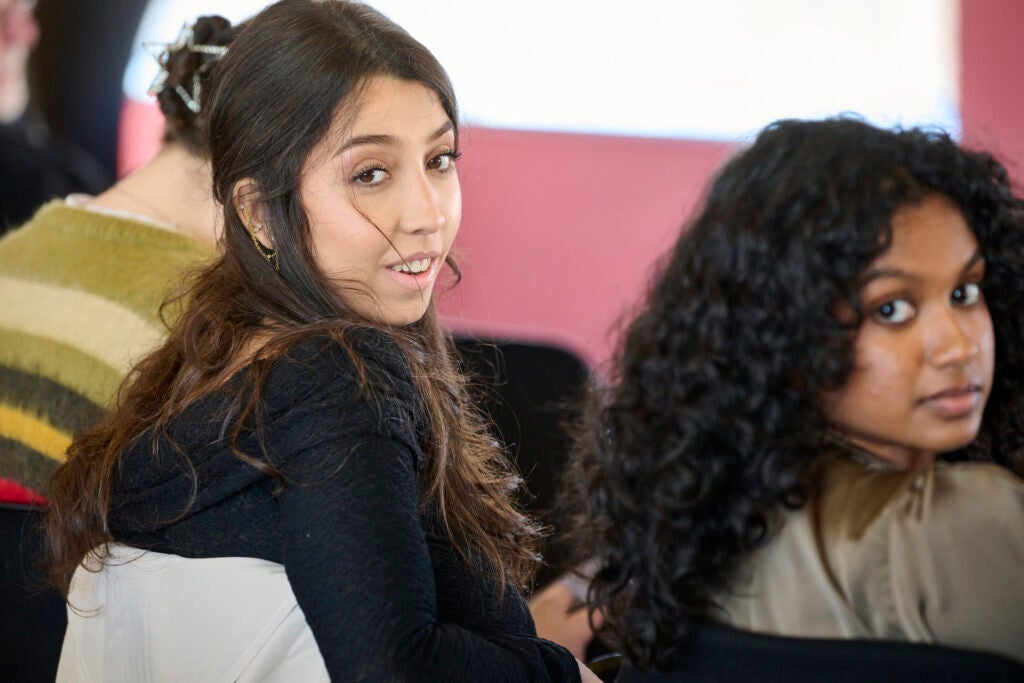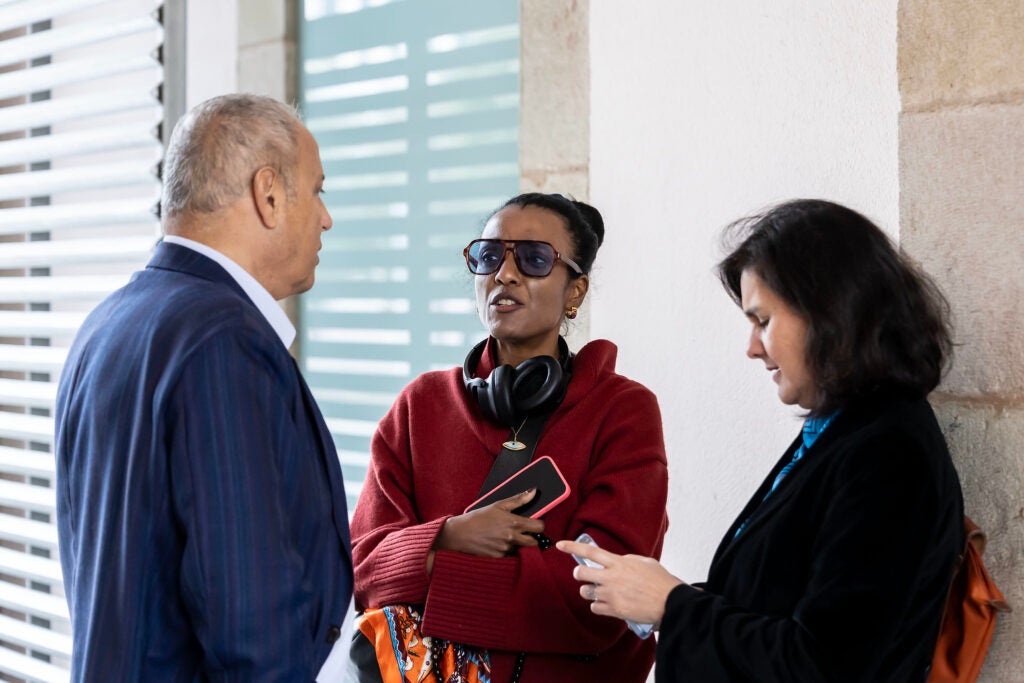Transforming not Translating: GU-Q’s Approach to Global Education, and Why it is Hosting the Next Georgetown Global Dialogue
When Dean Safwan Masri opened the second day of Georgetown Global Dialogues (GGD) in Barcelona with Homer’s Iliad, he was demonstrating what Georgetown University in Qatar brings to global conversations: the ability to hold multiple intellectual traditions in productive dialogue.
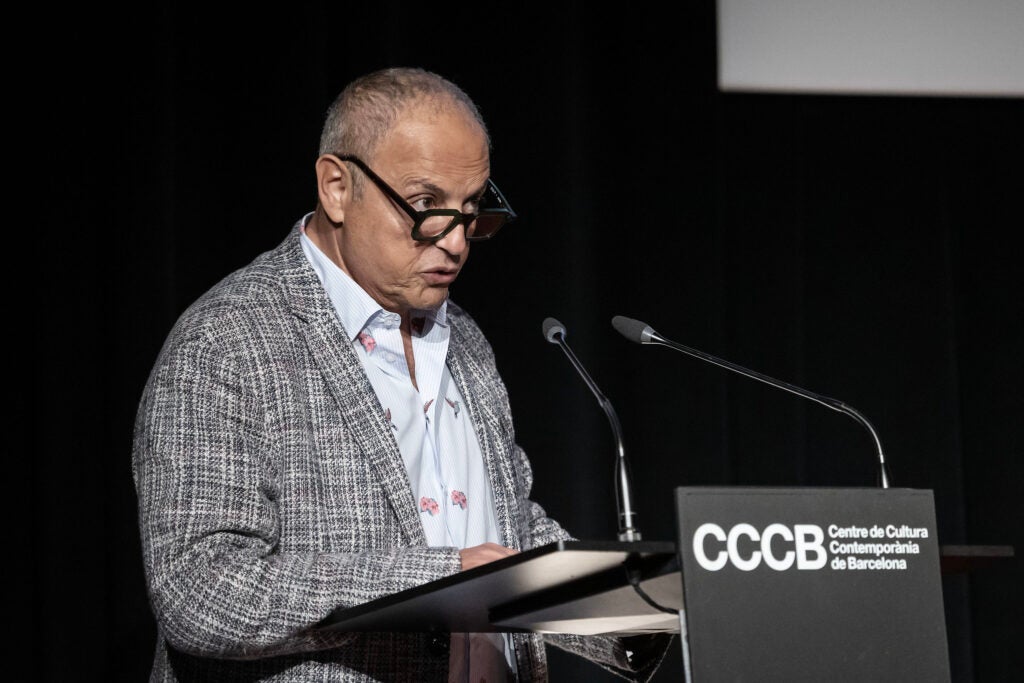
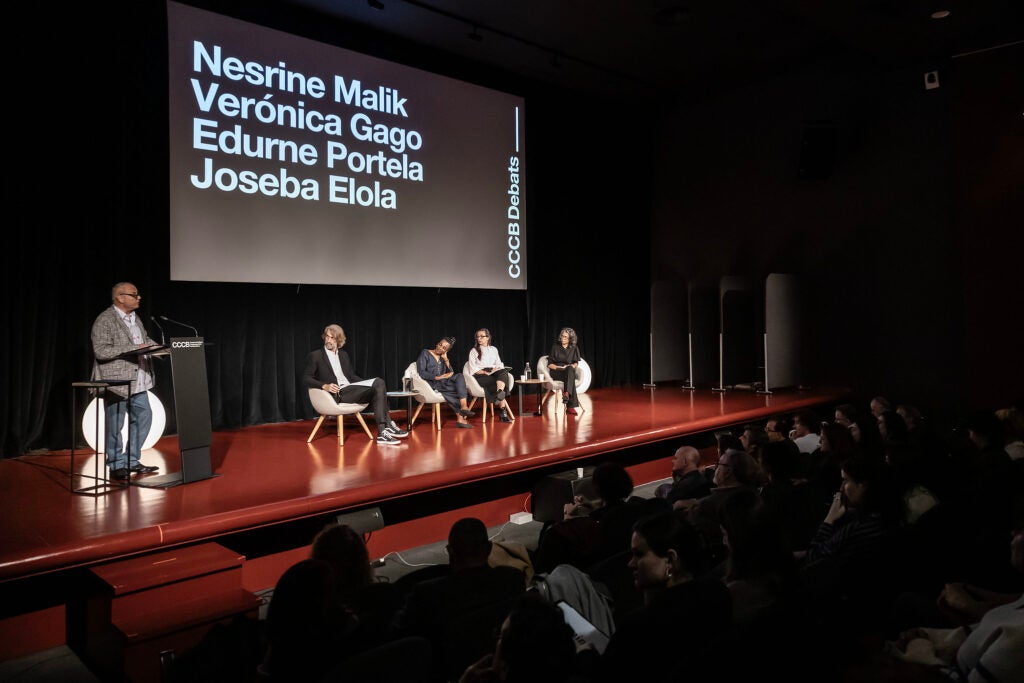
“Our community draws from intellectual lineages that span continents,” Dean Masri told the international gathering, adding: “The poetic introspection of Arabic literature, the moral reasoning of Persian thought, the postcolonial imagination of Africa, and the philosophical rigor of South Asia.” His remarks set the stage for a much-anticipated announcement: GU-Q will be hosting the next Global Dialogue in the spring.
The third iteration of the Georgetown Global Dialogues, held November 3-6 in partnership with the Centre de Cultura Contemporània de Barcelona, convened writers and critics to address a pressing question: Can recognition of shared human frailty become the basis for renewed solidarity in a fractured world?
Alongside celebrated authors Hisham Matar, Pankaj Misra, and Nesrine Malik, Georgetown’s Qatar campus contributed student voices and intellectual frameworks, centering perspectives from the Global South—regions often marginalized in global conversations yet most affected by their outcomes.
“There needs to be a world where young people are not being forced to revolt.”
Georgetown Global Dialogues Student Fellow Carl Jambo (SFS’28) from Zimbabwe exemplified this during a panel moderated by celebrated author and editor Paul Elie. He rejected the inheritance of pessimism and disbelief from previous generations, urging youth to connect to their elders, learn from their mistakes, and actively push for change.
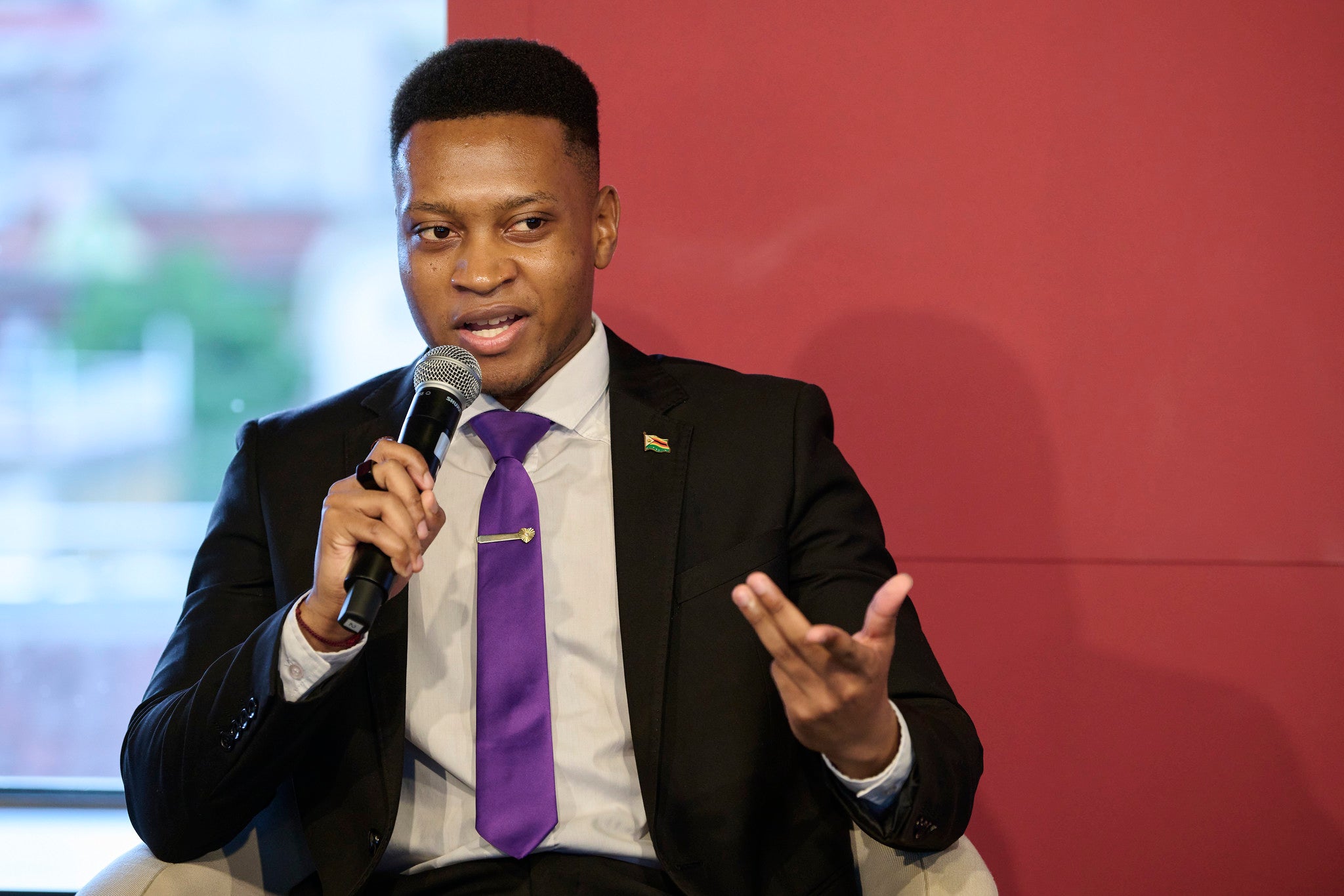
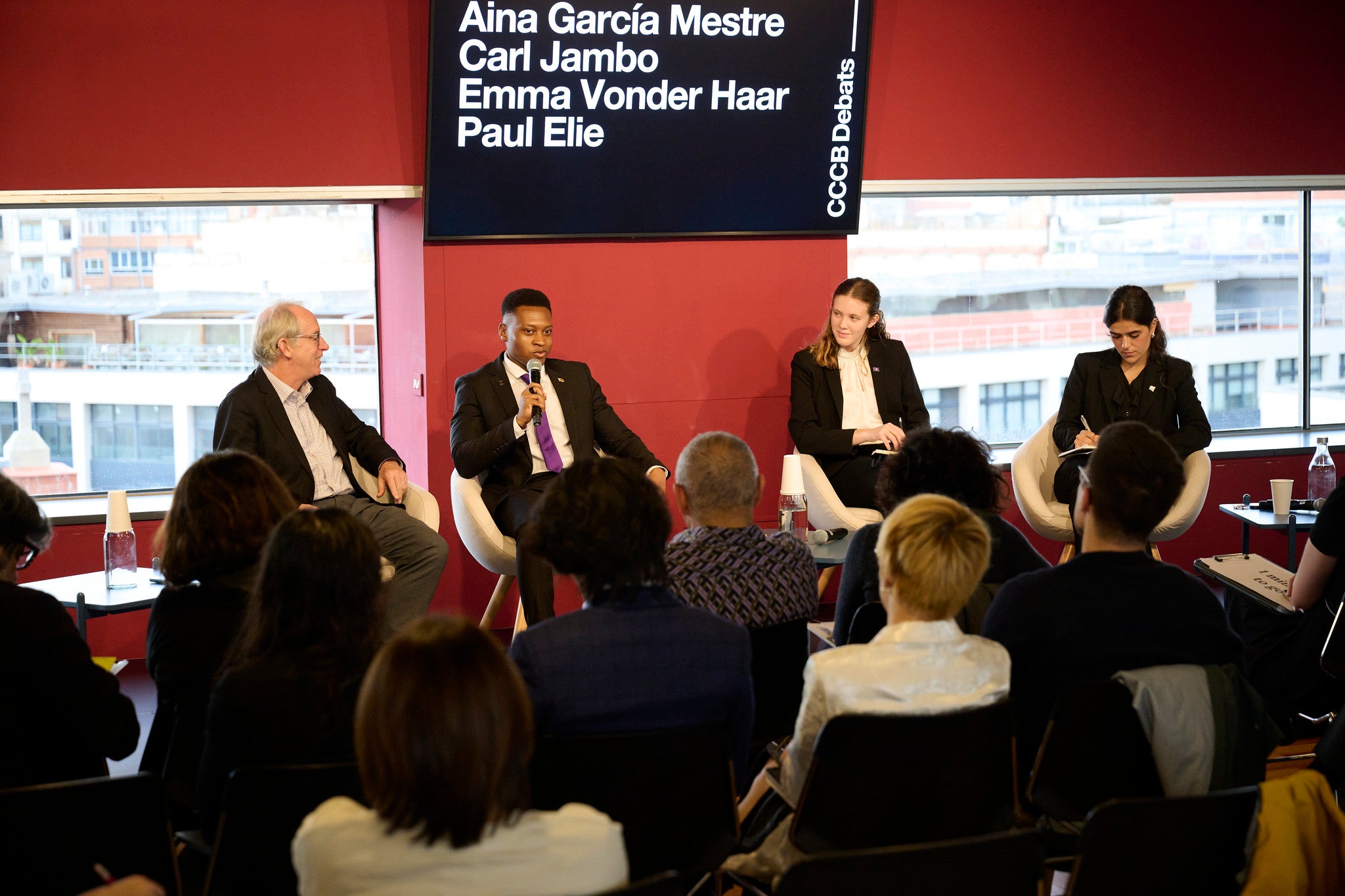
“I come from Zimbabwe where there are young people who want to transform the continent. We are tired of the same challenges of poverty, corruption,” Carl said. “The solution is to…connect generations. The generation that has lessons and also the generation that has ideas and sees opportunities and has potential to transform the world.”
He continued: “There needs to be a world where young people are not being forced to revolt. I genuinely believe in a world where young people are openly accepted…Let’s give them the opportunity and the platform.”Georgetown Global Dialogues Student Fellows Tuan Nguyen (SFS’27), Masa Qaoud (SFS’28), and Jaelene Lyman (SFS’26) joined Carl in Barcelona, reinforcing the message that youth from the Global South are capable of stepping up to the global stage.
Intellectual Traditions in Dialogue: The Qatar Model
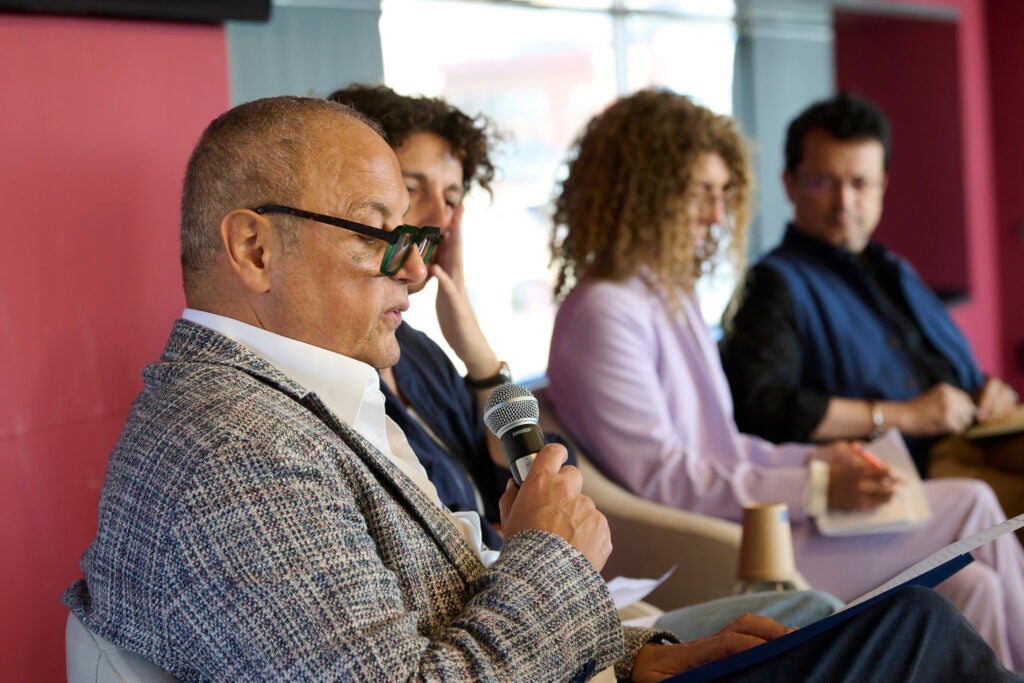
Dean Masri’s contribution included moderating a session on “The Failed Promise of Secular Modernity,” where he framed the discussion between philosopher Marina Garcés, Director of the Georgetown Humanities Initiative Nicoletta Pireddu, and Poet Ranjit Hoskote by saying “We have gained the capacity to transform our world but lost the ability to orient ourselves within it.”
In his introduction to the second day of dialogue, Dean Masri drew from Homer, philosopher Iris Murdoch, and Cameroonian philosopher Achille Mbembe, to offer insight on overcoming the ego and finding strength in shared vulnerability. In doing so, he highlighted the university’s distinctive contribution to educating grounded leaders. He described Georgetown Qatar as a transformative site of continuous encounter “a university where the global and the local meet and interrogate each other.” This moral work of cultivated encounter fostered by the humanities can offer students lasting guidance in an uncertain world: “To read deeply, to listen fully, is to be briefly freed from the prison of ego,” he said.
Looking Ahead: Doha 2026
Furthering that spirit of encounter, Georgetown Qatar will host the next Georgetown Global Dialogues in Spring 2026. The choice of Doha offers the dialogue’s first foray outside of the west, advancing its goal to foster a more inclusive, international conversation about ways forward in a divided world by engaging perspectives from the Global South.
Dean Masri closed with a challenge to participants that set the aims of the upcoming Qatar Georgetown Global Dialogues: “Thinking is only half our task, the other is to begin remaking the world anew. If each of us leaves this gathering carrying even one spark of another’s insight, one renewed sense of care, we will have kindled the slow, redemptive work of building a common future.”
